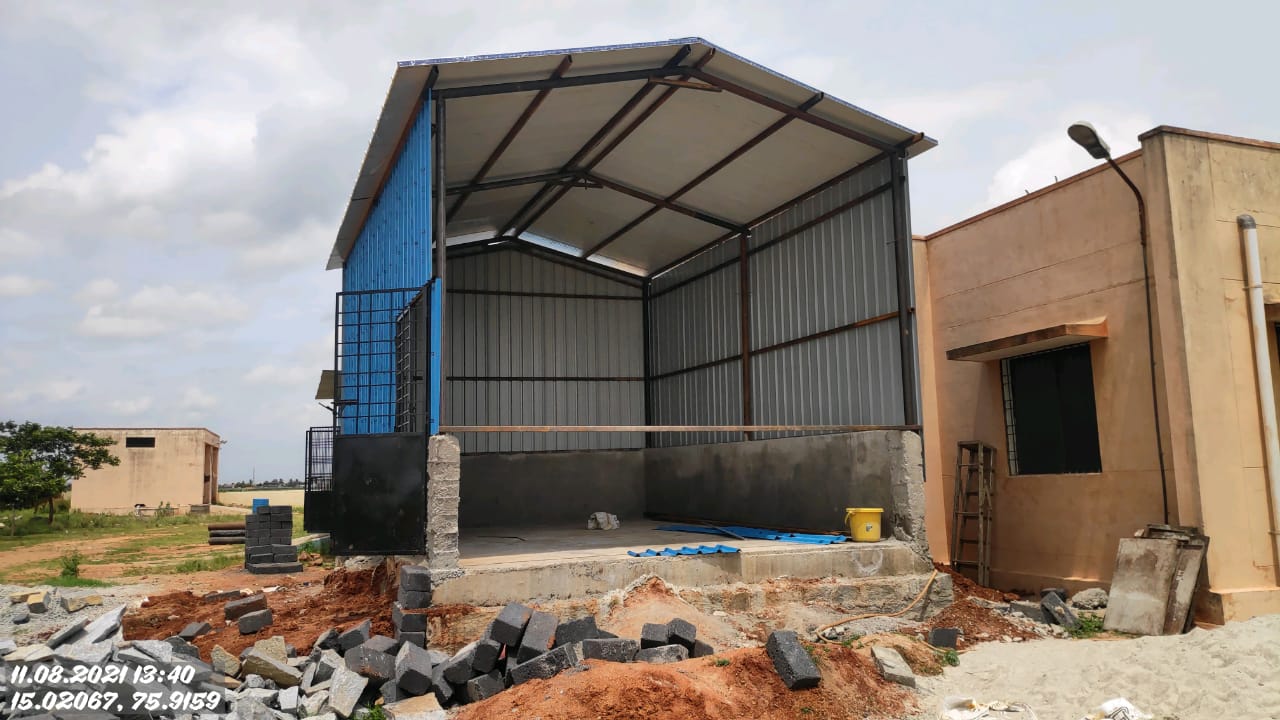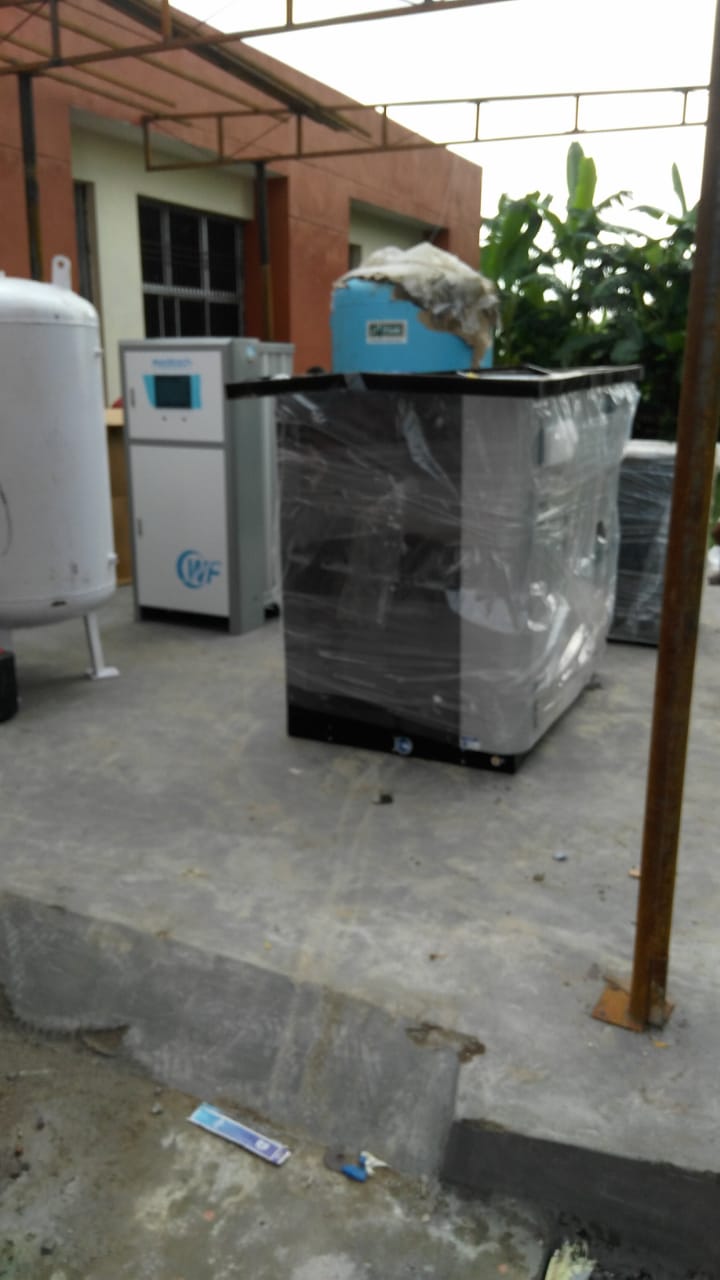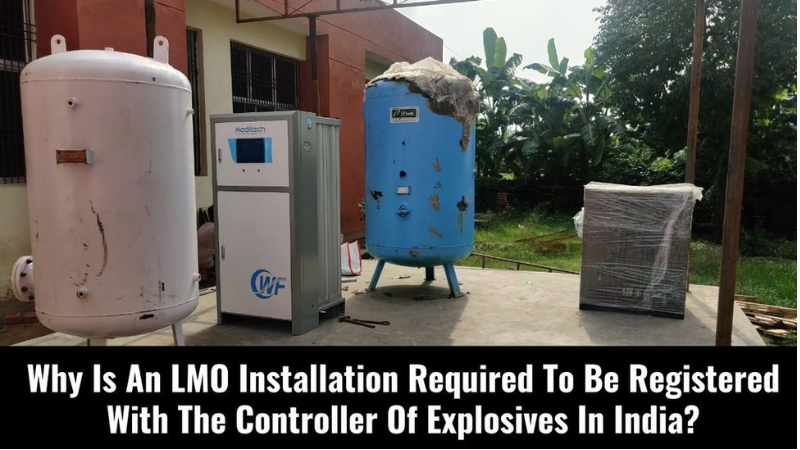A license given under the Explosives Rules, 2008 is required for the import or export of explosives, and only those explosives that are "Authorized" under the Explosives Rules are authorized to be imported/exported. Under Sections 5 and 7 of the aforementioned Act, the Central Government adopted the Gas Cylinder Rules, 2004 to govern the filling, possession, transportation, and import of such gases. The purpose of these Rules is to safeguard the safety of the public when filling, possessing, transporting, or importing such gases.
Because the Firm must get the site location details from the hospital authorities, the LMO installation must be registered. The Petroleum and Explosives Safety Organization should then grant the requisite site approval. The location should be inside a secured compound and easily accessible to road tankers. All hazardous structures, combustible materials, public access, vehicles, and surface water drains must be at least 5 meters, and in some situations 8 meters, away from the closest point of the compound. The concrete compound right in front of the fill connection must be designed to contain any liquid spillage, as the risk of fire is enhanced if liquid spillage occurs. When tar and asphalt come into contact with liquid oxygen, they react explosively. At their own expense, the firm will be responsible for a routine check, maintenance, and demonstration of LMO operation, as well as preventive measures to be taken in the event of an emergency, to the hospital's technical staff.
Internationally, the unit should be the most recent version. As a minimum, the unit should be equipped with standard accessories and have passed a standard inspection. It is necessary to present a certificate to that effect. The supplier will keep possession of the liquid oxygen tank. Although the hospital's authorities will hold the license for the Liquid Oxygen Tank installation, the LMO supplier will be responsible for the infrastructure's safe and secure maintenance.
Why Is An LMO Installation Required To Be Registered With The Controller Of Explosives In India?

LMO is a type of high-purity oxygen produced specifically for use in the human body and medical therapy. Liquid medical oxygen installation and varied modes of supply each have their logistics, installation, and set-up procedures. As a result, the advantages and benefits of a liquid medical oxygen system vary depending on the hospital's size (bed capacity), location, amount of oxygen utilized, and local supply and service support. Medical oxygen supply systems are built and installed for healthcare facilities according to specific specifications and criteria. Liquid oxygen is used in missile and rocket propellant systems as an oxidant for liquid fuels. Oxygen is often used in combination with acetylene and other fuel gases for metal cutting, welding, scarfing, hardening, cleaning, and melting. Medical oxygen is mostly produced in factories, of which India has about 500. They extract oxygen from air by freezing it and then separating the oxygen, nitrogen, and other components based on their boiling points. The LMO supply chain in India is fairly structured at the upstream production end but highly fragmented at the downstream end, where the manufactured LMO must reach hospitals. The first bottleneck occurs at the manufacturing facility, where capacity is insufficient to match the rising demand for Covid-19.
LMO production capacity in India is now between 7,000 and 8,000 tonnes per day. There is a capacity shortfall of available LMO in the country, with demand approaching 9,000-11,000 tonnes per day. In India, 33 steel factories now supply LMO. Only around 5-10% of the total gaseous oxygen produced by these steel mills may be converted into LMO for use in the medical field. The LMO is transported in cryogenic tankers to the bottling plant, where oxygen cylinders are filled and then distributed to hospitals. Steel mill tankers are occasionally transported to hospitals directly. A second bottleneck can be seen at the intersection of the LMO and cylinder supply chains. The imbalance between LMO cycle time and cylinder capacity generates bottlenecks that make meeting demand difficult.
Social isolation is possible because of the Liquid Medical oxygen system's unmanned operation, which none of the other methods of distribution can ensure.
What's The Role Of Medkav's Technology?

Media Technologies is rapidly expanding its healthcare footprint. We also provide a safe environment for learning. As the world becomes safer and healthier, hospitals may be able to become closer to their patients. Medkav's Medicinal Oxygen Gas Generator keeps medical oxygen flowing throughout the facility. We assist hospitals in saving money by replacing oxygen cylinders with high-quality, long-lasting oxygen generators. Our products are designed to withstand the harsh Indian environment, power outages, and air pollution concerns. Creating a technological breakthrough could be a big achievement. Making progress in this area will help it break into the industry for commercial use. It's tough, but not impossible, to blend into a sea of expectations.
Molecular sieves, also known as Zeolites, are used in a new type of oxygen generator that uses multiple modules connected in parallel. Because each module is self-contained, if one fails due to a filter failure, the others will continue to function. A simple pipe-and-cable connection connects the modules. Because of their technical superiority, high reliability, and competitive performance-price ratio, our medical goods are well-known and popular in medical institutions around the world. Adsorbers made of ALUMINIUM alloy with oxidation treatment are 30 percent lighter than carbon steel Adsorbers and have greater corrosion resistance. Purity and Flow are entire computers and electrical controlled, with NO MANUAL SETTINGS. The newly developed Adsorber decreases friction between molecular sieves by using Mechanical Pre-tightening Technology, resulting in lower molecular sieve pulverization, longer sieve life, and higher purity levels.
We are dedicated to providing exceptional service ( USP) Unlike most other companies (current market alternatives/competitors), we provide prompt and attentive service, as well as a team of experts To assist our clients in resolving many types of service concerns at reasonable prices, we have a variety of strengths. We also provide a dedicated single point of the contact account manager to service each client. Our parent company, Kavia, produces goods that are both safe and effective, as well as energy efficient and dependable, and they are elegantly designed, meticulously tested, professionally produced, and set up at their Bangalore Research Centre.

